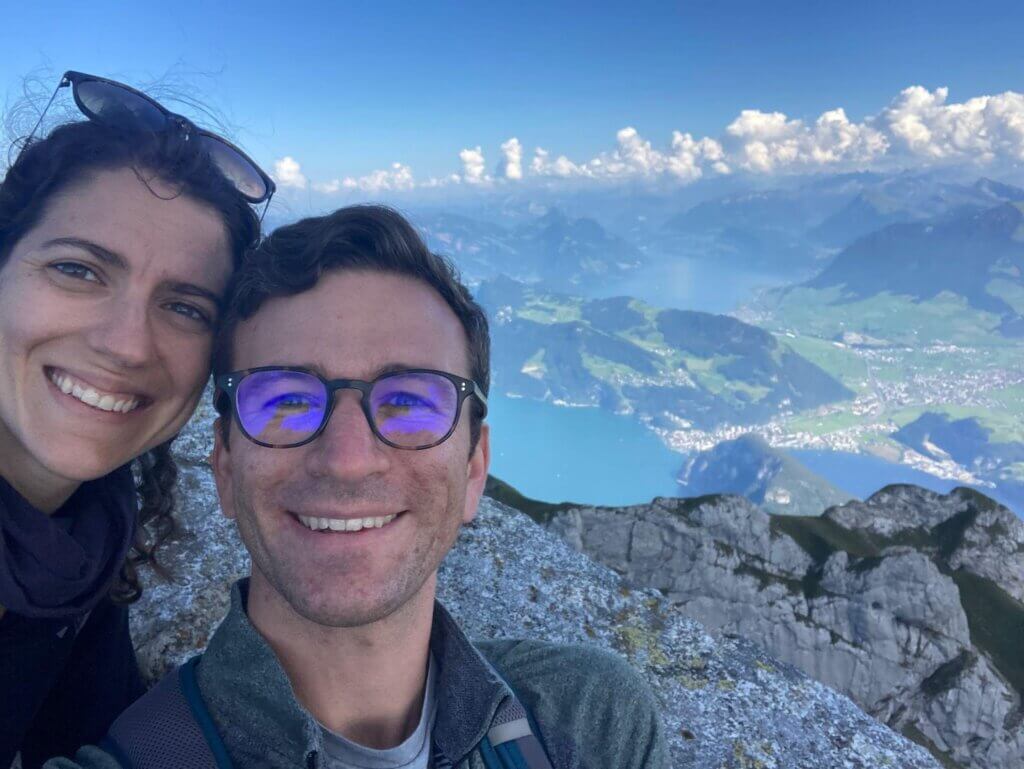Dr. Camille Delavaux
Science is a demanding field that rewards hard work. But how much work is too much?
Like many scientists, I’ve devoted a great deal of my life to my career. Over the past decade, I completed two undergraduate degrees, my Master’s, earned my PhD, and started a postdoctoral position. I’ve been able to put my Type A personality and workaholic tendencies to good use – and had them rewarded by academia. Only lately, I’ve started wondering if this is really sustainable and what I want.
Don’t get me wrong, I love my career. I get to understand nature, figure out what lives in the soil and on plants around the world, and make sections of DNA amplify in the lab. I get to ask questions about what I see – what makes me wonder – and answer them. I’ve also been lucky to experience some epic field work adventures and to work with researchers who are great people. Even so, does work deserve all of my time?
Finding work-life balance in Switzerland as a scientist
I didn’t think about this too much until recently. During my PhD, I thought I was great at work-life balance. More often than not, I took an entire day off on the weekend, or at least two half days. Six 12-hour days of work out of seven is reasonable, right? Then, in the spring of 2021, my husband Dan and I moved from the U.S. to Switzerland for my postdoc.
For the first six months, Dan wasn’t working. He did lots of paperwork that came with an international move, but he also had time to actually discover this place across the world we’d moved to. He aimlessly wandered Zurich’s narrow streets, strolled into shops, visited nearby towns. Meanwhile, I arrived, had two days to build Ikea furniture and try some pastries, and started work less than 48 hours later.
While I processed soil samples, coded, and submitted papers, I became increasingly curious about where we were now living. Maybe it’s the ease of getting anywhere, mountains, waterfalls, little towns, hikes, nearby countries. Maybe it’s the mandatory five weeks off. Or maybe I finally became confident enough in myself to say, you know what, working ten hours a day five days a week should be enough to progress well. In any case, life really is too short. I find my work fascinating, and have fun doing it. But I also want to develop my language skills, visit every last corner around Zurich, try all the cheese dishes, snuggle with my family, visit relatives farther away. So, I decided if I was feeling this way, surely other scientists have figured out how to achieve work-life balance.
What really struck me as I asked peers how they do that work-life balance thing: most of them didn’t think they were fully succeeding. I got responses like, “difficult balance to strike,” “take my wisdom with a grain of salt,” “as someone who is overwhelmed at this very moment, I might not be the best to comment.” Turns out, we’re all figuring this out as we go.
Advice for achieving work-life balance as a scientist
Despite this general lack of confidence in actually achieving work-life balance, I got some good advice, which I’ve compiled here:
- Don’t make research your entire life. Find other passions, set limits on work hours, don’t put so much emotional stake in your work.
- Make time for the important things: friends, family, sleep, good food, exercise, the outdoors…
- Re-inspire yourself: remember why what you do is incredible.
- Engage with others, whether through mentoring, outreach, or just talking to others about what you do.
- Define your own success: identify what is enough for you instead of comparing yourself to others.
- Say NO! The power of saying no is transformational.
- Surround yourself with good people. Science can be pretty isolating, and you may be an introvert, but bonfires and marshmallows or wine and cheese with friends is magical.
- Laugh at yourself. Don’t take things too seriously, and be quick to joke about terrible reviewers and failed experiments.
- Be patient. Pushing the boundaries of human knowledge is difficult work.
It’s encouraging to see that work-life balance means many things, and importantly, means different things to different people. In the end, it’s about trying, stopping to evaluate, and making an effort to be happy. I’ll let you know when I’ve managed to try all those cheese dishes and visit all five countries bordering Switzerland!
New perspective: Dan and I enjoy the view on a day off.

